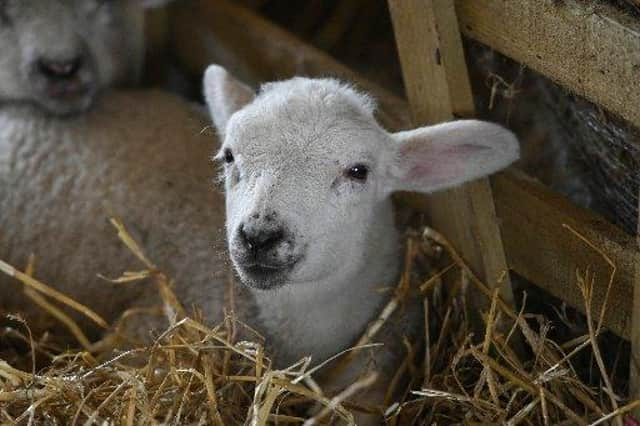FARMING: Safety first at busiest times of the year


It has been an incredibly challenging time to find a way to continue to provide essential care to our patients and at the same time as safeguarding the health of both our clients and veterinary staff.
Guidance has been provided by both our governing body- The Royal College of Veterinary Surgeons (RCVS) and the British Veterinary Association (BVA) to help us with these difficult decisions.
Advertisement
Hide AdAdvertisement
Hide AdThe essence of this advice is that we need to continue to work to protect the food production chain, and provide emergency and urgent care to all other animals. However protecting human health, and
doing our part to prevent further spread of Coronavirus has to be at the forefront of our minds. For the farm animal team, this is reasonably easy to instigate. Spring is the busiest time for us on
farm. The majority of work at this time of year are emergencies- such as providing assistance to tricky lambings and calvings, and dealing with pre and post natal complications. For the farm vets it is ‘business as usual’, although most vets are limiting their trips back into the surgery. However, some modifications have had to be put in place. Social distancing needs to be followed during farm visits, and additional protocols followed if someone on the farm is suspect to have Covid-19. We are also asking that farm medication needs to be ordered in advance, and arrangements made for collection to prevent unnecessary contact between staff and clients.
For small animal and equine vets, things are more complicated. With some members of staff unable to work due to being in a ‘vunerable group’ and others having to self-isolate, or take over childcare,
Advertisement
Hide AdAdvertisement
Hide Adwe are working with reduced team members. In addition, we are keeping veterinary teams to minimum numbers in the surgery to reduce human contact as much as possible.
RCVS and BVA have advised that no routine procedures should be carried out (such as nail clips, routine dentals or neutering etc.). Emergency cases are being undertaken to our usual high standard,
and nursing care is being maintained for these critically ill patients 24/7.
We are also now offering telephone consultations to our clients. The aim is to limit the number of face-to-face consultations to those that are absolutely essential, and provide treatment and professional advice where possible without direct contact.
Advertisement
Hide AdAdvertisement
Hide AdMany of our patients have chronic conditions that require lifelong medication. These are available by calling the surgery as normal, although the options for collection of medication now include postage,
or collection at a designated time.
We hope that with the support of all our clients, we will continue to be able to provide excellent veterinary care without compromising human health- it is up to all of us to play our part in this
unprecedented crisis. Fingers crossed it won’t be long until ‘normal service’ can be resumed.